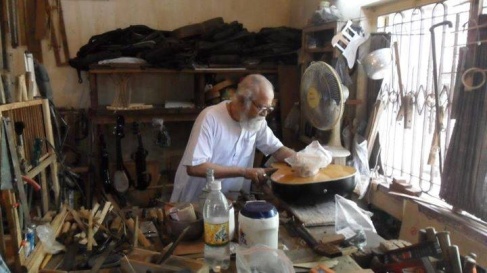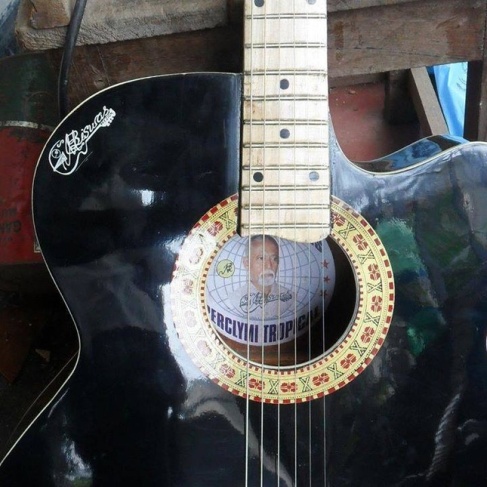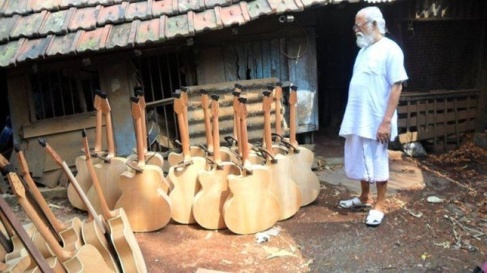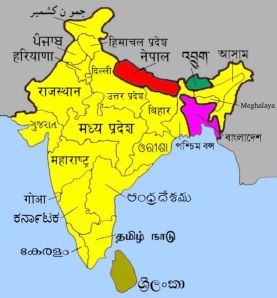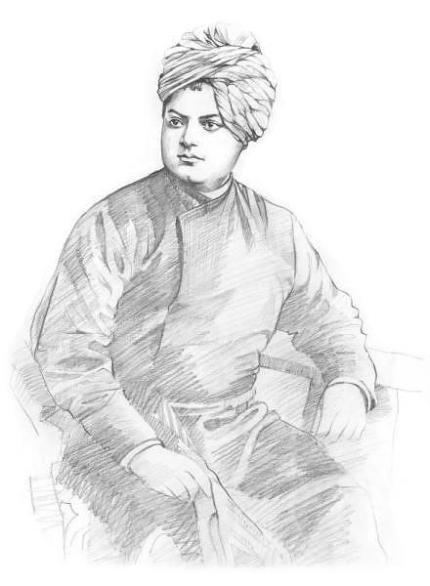
“Unless u do something for others there will be no peace and joy in your life”
Place: The Math premises at Belur.
Belur,Famous for Swami Vivekananda’s shrine – Belur Math, situated almost fifteen kilometers away from the heart of Kolkata along the banks of Hooghly, it is considered one of the holiest pilgrimages for Swamiji’s followers, the other being Kanyakumari. However, last month I am there to visit ramakrishna math.here i am sharing conversation between Shri Sharat Chandra Chakravarty and swamiji from which we will get inspired by swamiji thoughts on education and entrepreneurship
The disciple has come to the Math this morning. As soon as he stood after touching the feet of Swamiji, Swamiji said, “What’s the use of your continuing in service any more? Why not go in for some business?” The disciple was then employed as a private tutor in some family. Asked about the profession of teaching, Swamiji said, “If one does the work of teaching boys for a long time, one gets blunt in intellect; one’s intelligence is not manifested. If one stays among a crowd of boys day and night, gradually one gets obtuse. So give up the working of teaching boys.”
Disciple: What shall I do, then?
Swamiji: Why, if you want to live the life of a worldly man and have a desire for earning money, then go over to America. I shall give you directions for business. You will find that in five years you will get together a lot of money.
Disciple: What business shall I go in for? And where am I to get the money from?
Swamiji: What nonsense are you talking? Within you lies indomitable power. Only thinking, “I am nothing, I am nothing”, you have become powerless. Why, you alone! The whole race has become so. Go round the world once, and you will find how vigorously the life-current of other nations is flowing. And what are you doing? Even after learning so much, you go about the doors of others, crying, “Give me employment”. Trampled under others’ feet doing slavery for others, are you men any more? You are not worth a pin’s head! In this fertile country with abundant water-supply, where nature produces wealth and harvest a thousand times more than in others, you have no food for your stomach, no clothes to cover your body! In this country of abundance, the produce of which has been the cause of the spread of civilisation in other countries, you are reduced to such straits! Your condition is even worse than that of a dog. And you glory in your Vedas and Vedanta! A nation that cannot provide for its simple food and clothing, which always depends on others for its subsistence — what is there for it to vaunt about? Throw your religious observances overboard for the present and be first prepared for the struggle for existence. People of foreign countries are turning out such golden results from the raw materials produced in your country, and you, like asses of burden, are only carrying their load. The people of foreign countries import Indian raw goods, manufacture various commodities by bringing their intelligence to bear upon them, and become great; whereas you have locked up your intelligence, thrown away your inherited wealth to others, and roam about crying piteously for food.
Disciple: In what way, sir, can the means of subsistence be procured?
Swamiji: Why, the means are in your hands. You blindfold your eyes, and say, “I am blind and can see nothing.” Tear off the folds from your eyes and you will see the whole world lighted by the rays of the midday sun. If you cannot procure money, go to foreign countries, working your passage as a Lascar. Take Indian cloth, towels, bamboo-work, and other indigenous products, and peddle in the streets of Europe and America; you will find how greatly Indian products are appreciated in foreign markets even now. In America I found, some Mohammedans of the Hooghly district had grown rich by peddling Indian commodities in this way. Have you even less intelligence than they? Take, for example, such excellent fabric as the Varanasi-made Sâris of India, the like of which are not produced anywhere else in the world. Go to America with this cloth. Have gowns made out of this fabric and sell them, and you will see how much you earn.
Disciple: Sir, why will they wear gowns made of the Saris of Varanasi? I have heard that clothes designed diversely are not to the taste of the ladies in those countries.
Swamiji: Whether they will receive or not, I shall look to that. It is for you to exert yourself and go over there. I have many friends in that country, to whom I shall introduce you. At first I shall request them to take this cloth up among themselves. Then you will find many will follow suit, and at last you won’t be able to keep the supply up to the enormous demand.
Disciple: Where shall I get the capital for the business?
Swamiji: I shall somehow give you a start; for the rest you must depend on your own exertions. “If you die, you get to heaven; and if you win, you enjoy the earth” (Gita). Even if you die in this attempt, well and good, many will take up the work, following your example. And if you succeed, you will live a life of great opulence.
Disciple: Yes, sir, so it is. But I cannot muster sufficient courage.
Swamiji: That is what I say, my son, you have no Shraddhâ — no faith in yourselves. What will you achieve? You will have neither material nor spiritual advancement. Either put forth your energy in the way I have suggested and be successful in life, or give up all and take to the path we have chosen. Serve the people of all countries through spiritual instruction — then only will you get your dole of food like us. If there is no mutual exchange, do you think anybody cares for anybody else? You observe in our case, that because we give the householders some spiritual instructions, they in return give us some morsels of food. If you do nothing, why will they give you food? You observe so much misery in mere service and slavery of others, still you are not waking up; and so your misery also is never at an end. This is certainly the delusive power of Maya! In the West I have found that those who are in the employment of others have their seats fixed in the back rows in the Parliament, while the front seats are reserved for those who have made themselves famous by self-exertion, or education, or intelligence. In Western countries there is no botheration of caste. Those on whom Fortune smiles for their industry and exertion are alone regarded as leaders of the country and the controllers of its destiny. Whereas in your country, you are simply vaunting your superiority in caste, till at last you cannot even get a morsel of food! You have not the capacity to manufacture a needle, and you dare to criticise the English! Fools! Sit at their feet and learn from them the arts, industries, and the practicality necessary for the struggle for existence. You will be esteemed once more when you will become fit. Then they too will pay heed to your words. Without the necessary preparation, what will mere shouting in the Congress avail?
Disciple: But, sir, all the educated men of the country have joined it.
Swamiji: Well, you consider a man as educated if only he can pass some examinations and deliver good lectures. The education which does not help the common mass of people to equip themselves for the struggle for life, which does not bring out strength of character, a spirit of philanthropy, and the courage of a lion — is it worth the name? Real education is that which enables one to stand on one’s own legs. The education that you are receiving now in schools and colleges is only making you a race of dyspeptics. You are working like machines merely, and living a jelly-fish existence.
The peasant, the shoemaker, the sweeper, and such other lower classes of India have much greater capacity for work and self-reliance than you. They have been silently working through long ages and producing the entire wealth of the land, without a word of complaint. Very soon they will get above you in position. Gradually capital is drifting into their hands, and they are not so much troubled with wants as you are. Modern education has changed your fashion, but new avenues of wealth lie yet undiscovered for want of the inventive genius. You have so long oppressed these forbearing masses; now is the time for their retribution. And you will become extinct in your vain search for employment, making it the be-all and end-all of your life.
Dear All,
If you are looking for ultimate peace , calm & concentrate and find yourself within you.Please visit & spend couple of constructive hours at belur math, Howrah. Swami Vivekananda has established the same.The ideology of Ramakrishna Math & Mission consists of eternal principles of Indian own Vedanta and thought of SRI SRI Ramakrishna Deb & Swami Vivekananda. It consists of 3 characteristics: it is modern in the sense that the ancient principles of Vedanta have been expressed in the modern idiom; it is universal, that is, it is meant for the whole humanity; it is practical in the sense that its principles can be applied in day-to-day life to solve the problems of life.
Timings::
April to September 6.00 to 11.30 a.m. and 4.00 to 7.00 p.m.
October to March 6.30 to 11.30 a.m. and 3.30 to 6.00 p.m.
Please make sure you be present physically the evening aarti. It is energetic & ultimate.
It is very true that they have means the sansis/monk have dedicated their life towards the mankind without their own interest.
They do have one Veda Vidyalaya where ancient sanskrit is taught.
There is one museum where you will find articles and artifacts closely associated with Sri Sri Ramakrishna Dev, Holy Mother, Sri Sri Swami Vivekananda and other direct disciples of the Master have been kept.We wish all visit and get blessing of Almighty for ever.



